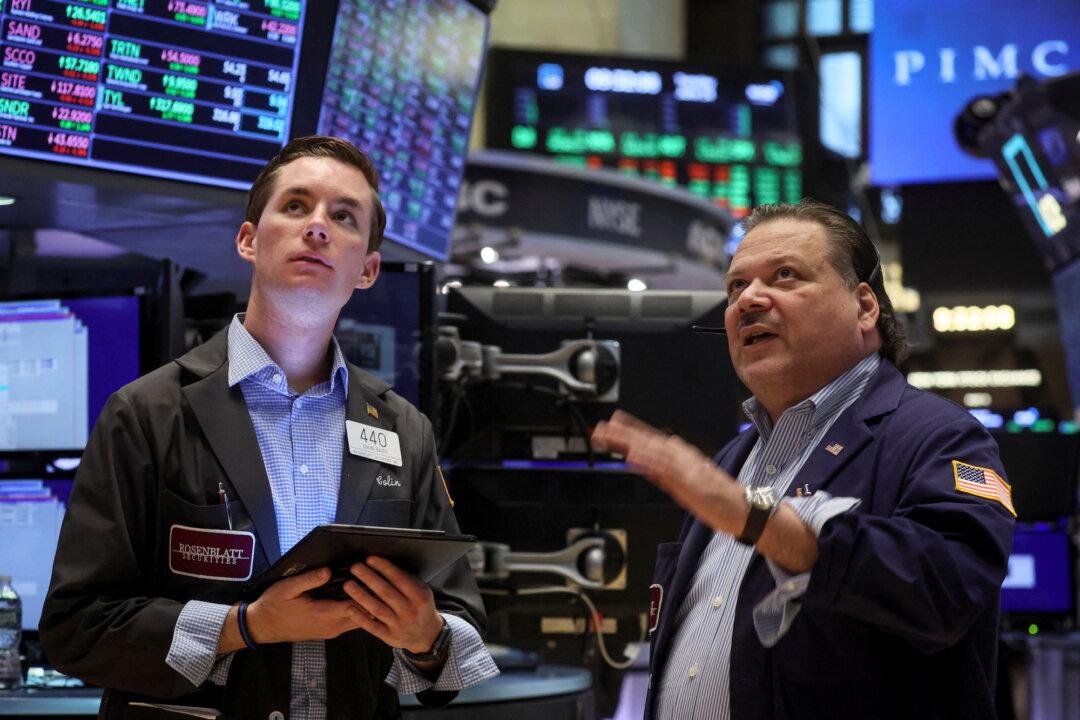Futures contracts on Wall Street’s major stock indexes were all in the red ahead of opening bell Thursday, pointing to likely drops when markets open later in the day as the post-Fed rate hike rally appears at risk of fading.
The Federal Reserve on Wednesday hiked rates by 75 basis points, the sharpest increase since 1994, in a bid to get a handle on soaring inflation.





